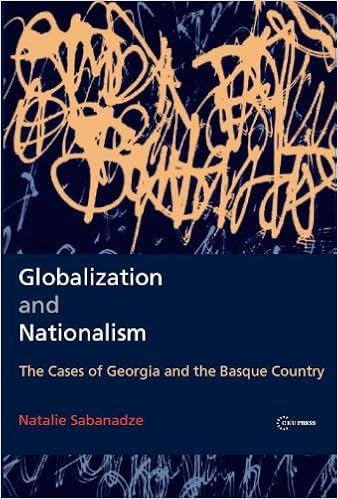 Argues for an original, unorthodox conception about the relationship between globalization and contemporary nationalism 끝까지 간다. While the prevailing view holds that nationalism and globalization are forces of clashing opposition, Sabanadze establishes that these tend to become allied forces 포토샵 무설치 다운로드. Acknowledges that nationalism does react against the rising globalization and represents a form of resistance against globalizing influences, but the Basque and Georgian cases prove that globalization and nationalism can be complementary rather than contradictory tendencies 다운로드.
Argues for an original, unorthodox conception about the relationship between globalization and contemporary nationalism 끝까지 간다. While the prevailing view holds that nationalism and globalization are forces of clashing opposition, Sabanadze establishes that these tend to become allied forces 포토샵 무설치 다운로드. Acknowledges that nationalism does react against the rising globalization and represents a form of resistance against globalizing influences, but the Basque and Georgian cases prove that globalization and nationalism can be complementary rather than contradictory tendencies 다운로드.
Nationalists have often served as promoters of globalization, seeking out globalizing influences and engaging with global actors out of their very nationalist interests 다운로드. In the case of both Georgia and the Basque Country, there is little evidence suggesting the existence of strong, politically organized nationalist opposition to globalization 다운로드.
Discusses why, on a broader scale, different forms of nationalism develop differing attitudes towards globalization and engage in different relationships 레포트 목차.
Sabanadze, N. (2010). Globalization and Nationalism: The Cases of Georgia and the Basque country. Central European University Press.
See on books.google.com; Review (Kevin Tuite, Université de Montréal)

 This book explores events in Georgia in the years following Stalin’s death in March 1953, especially the demonstrations of March 1956 and their brutal suppression, in order to illuminate the tensions in Georgia between veneration of the memory of Stalin, a Georgian, together with the associated respect for the Soviet system that he had created, and growing nationalism
This book explores events in Georgia in the years following Stalin’s death in March 1953, especially the demonstrations of March 1956 and their brutal suppression, in order to illuminate the tensions in Georgia between veneration of the memory of Stalin, a Georgian, together with the associated respect for the Soviet system that he had created, and growing nationalism  Jonathan Wheatley examines the tortuous process of regime change in Georgia from the first pro-independence protests of 1988 to the aftermath of the so-called Rose Revolution in 2004
Jonathan Wheatley examines the tortuous process of regime change in Georgia from the first pro-independence protests of 1988 to the aftermath of the so-called Rose Revolution in 2004  Manning examines the formation of nineteenth-century intelligentsia print publics in the former Soviet republic of Georgia both anthropologically and historically
Manning examines the formation of nineteenth-century intelligentsia print publics in the former Soviet republic of Georgia both anthropologically and historically 